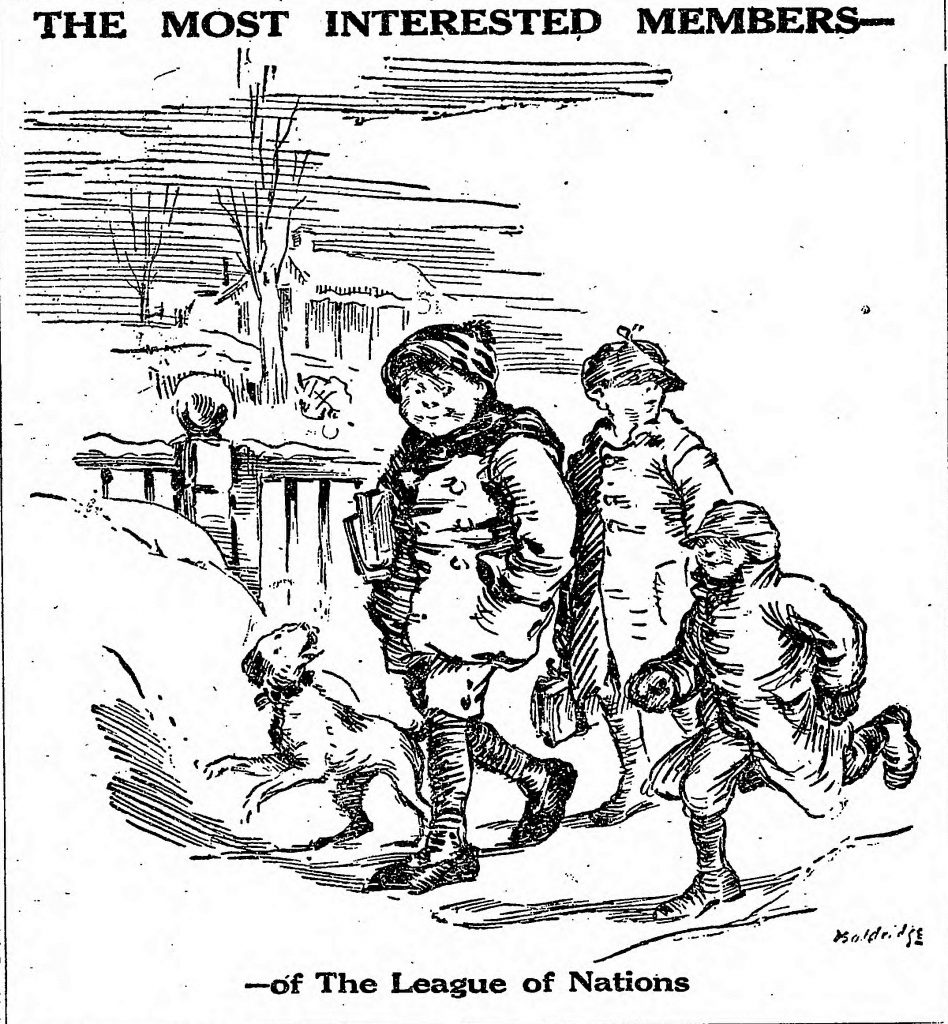Today in History: First Assembly of the League of Nations, 1920 (Switzerland)
Geneva, capital of the world, was crowded to capacity today when representatives of nearly half a hundred nations from every corner of the globe gathered to attend the first meeting of the assembly of the League of Nations.
Of the 45 powers mentioned in the covenant of the league, nearly all have already declared their allegiance to the league and are expected to avail themselves of the right to attend the first assembly meeting. Thirteen others, not named in the organic document, are applicants for admission and likely will have delegates on the ground during the meeting.
https://www.upi.com/Archives/1920/11/15/First-meeting-of-assembly-of-League-of-Nations-is-open/3271510630366/
Of the 45 powers mentioned in the covenant of the league, nearly all have already declared their allegiance to the league and are expected to avail themselves of the right to attend the first assembly meeting. Thirteen others, not named in the organic document, are applicants for admission and likely will have delegates on the ground during the meeting.
https://www.upi.com/Archives/1920/11/15/First-meeting-of-assembly-of-League-of-Nations-is-open/3271510630366/
Between 1920 and 1925, the organization helped diffuse a border dispute between Sweden and Finland, prevented Austria from economic collapse, prevented the outbreak of a war in the Balkans, and had successfully begun the administration of the German Saar region. Despite these successes, however, the league had been forced to cope with some very serious handicaps that would ultimately undermine its effectiveness. Seeking to preserve their national power, the organization's creators had deprived the league of any real ability to enforce decisions that were controversial. For example, when the league ruled that the city of Vilnius actually belonged to Lithuania, the Polish government simply refused to abide by the league's decision. Other more flagrant violations soon followed, such as the French incursion into the Ruhr in 1923, but the league was powerless to punish France or compel a withdrawal. As a result, the league was a relatively weak organization from the outset, and its chances for success were made even worse when the United States had refused to participate as a full member in 1920.
By the mid-1930s, however, the league was being consumed by its own inability to exert power, and the rise of fascism in Italy and Germany quickly made it look even more irrelevant. Nazi Germany withdrew from the league in 1933, and Italy attacked Ethiopia in 1935. Neither country was penalized for its actions, but by 1936 the league had become so marginal that virtually all meaningful diplomacy was being conducted on a bilateral level. With the onset of the Second World War, the league had all but ceased to function, although it continued to officially exist until 1945 when its duties were formally usurped by the United Nations.



Comments
Post a Comment